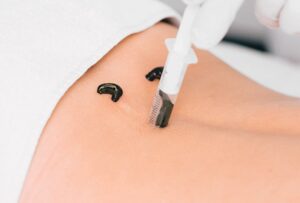Hirudotherapy: The Ancient Science of Medical Leech Care.
Hirudotherapy, or leech therapy, is an old medical system of treating patients with medicinal leeches (Hirudo medicinalis). This centuries-old remedy has been revived by modern medicine and plastic and reconstructive surgery.
What is Hirudotherapy?
Hirudotherapy refers to the directed application of medicinal leeches to specific sites on the body. They are breeds of leeches that excrete compounds in their saliva that are anticoagulants, vasodilators and anti-inflammatory. It is as old as Egypt and has survived to medieval Europe, finding a new place in modern medicine.
Medical Benefits and Applications
 The modern doctor is the hirudotherapist of many disorders:
The modern doctor is the hirudotherapist of many disorders:
– Reconstruction after surgery healing.
– Treatment of venous congestion
– Management of osteoarthritis
– Enhancement of blood flow in damaged tissue.
– Cure of chronic pain diseases.
– Treatment of varicose veins
Scientific Evidence
The discovery of more than 100 bioactives from leech saliva is made possible by studies on:
– Hirudin: A strong natural anticoagulant.
– Calin: An anti-platelet aggregation agent.
– Destabilase: Antimicrobial enzyme, also called.
– Hyaluronidase: An enzyme used to penetrate the tissue.
Safety and Regulations
Hospitals offering hirudotherapy have to adhere to rigorous protocols:
– Leeches are supplied from medical licensed sellers.
– Each leech is used only once so that there’s no cross-contamination.
– Sterilisation is done during the treatment.
– Patients are screened for possible contraindications.
Most patients don’t feel any pain in treatment. The leech bite contains natural painkillers. Some patients might have a little itching while healing.
How many sessions of treatment does a typical course last?
A: A session is usually 20-60 minutes, depending on the goal of therapy. The leech will come free after eating.
A: While safe in general when administered by professional, risks include:
- Local skin irritation
- Mild bleeding after treatment
- Rare allergic reactions
- Potential of infection if not taken care of effectively.
A: The therapy might not be appropriate for:
- Patients with bleeding disorders
- Those taking blood-thinning medications
- People with low immune systems.
- Pregnant women
- People with severe anemia
A: The number of sessions depends on the disorder. For some patients, the session is one time, for others weeks of sessions.
A: Depends on provider and country of coverage. hirudotherapy is usually covered in cases of licensed medical treatment, i.e., reconstructive surgery.
Conclusion
Hirudotherapy is the intriguing interlude between old-medicine and new medicine. Though once prescribed based on now-defunct medical assumptions, many of its medicinal uses have been proven by science. Like with any medication, patients must consult professional healthcare providers if hirudotherapy is right for them.


